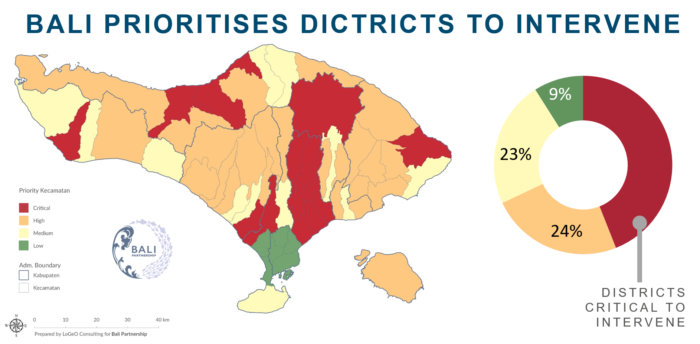Case studies
The ISWA Plastic Pollution Calculator is made to be a globally applicable tool, accounting for the realities on the ground in all countries, whatever their form of waste management. This has led to the successful application of the Calculator in countries all over the world including:
Kuala Lumpur, Malaysia
The first application of the Calculator was its preliminary testing across the city of Kuala Lumpur to coincide with the launch of the toolkit at the ISWA 2018 World Congress. Although secondary data was largely used for this analysis, the merits of the toolkit were demonstrated, receiving positive feedback from the expert panel and relevant attendees alike.
Bali, Indonesia
Following its successful launch at the ISWA 2018 World Congress in Kuala Lumpur, the Calculator was selected for use in a SYSTEMIQ led project termed the Bali Partnership.
Phase 1 of the Bali Partnership aimed to create a scientific baseline of the quantity of plastic waste entering Bali oceans, and identify the sources and location that this originated from. This had the objective of supporting president Jokowi’s ambitious commitment to reduce ocean plastic pollution from Indonesia 70% by 2025 and 100% by 2035.
Applied by the University of Leeds team across 57 districts on the island of Bali, 33,000 tonnes of plastic waste was calculated to become marine litter each year. High priority areas were identified in order to apply targeted engineering interventions in subsequent phases.
You can read more about the project here.

Cairo, Egypt
Applied by Mohamed Kamal to the informal settlement of Kozzika in Cairo as part of his University of Leeds MSc project, it was demonstrated that the Calculator can even be applied to areas severely lacking waste management infrastructure. Using unique methodologies to inform the Calculator on aspects such as open burning, the informal recycling sector, and open dumping; gave great insights into how plastic pollution arises in informal settlements. Interestingly, despite being based on the banks of the River Nile, the predominant source of plastic pollution came from the open burning of waste. This was due to thick vegetation meaning access to the Nile is limited, and low rainfall causing any waste in the environment to remain largely static. Only by the detailed assessment methodology of the Calculator did these unique characteristics come to light.
On-going
In addition, the Calculator is currently also being applied in several ongoing projects, including:
- Rotterdam, Netherlands (City of Rotterdam project)
- Nakhon Si Thammarat, Thailand (ESCAP project)
- Kuala Lumpur, Malaysia (ESCAP project)
- Da Nang, Vietnam (ESCAP project)
- Surabaya, Indonesia (ESCAP project)
- Turks and Caicos Islands (MSc project)
- Manaus, Brazil (ABRELPE, SEPA project)
- Ilha Grande Bay, Brazil (ABRELPE, SEPA project)
- Indonesia (PISCES Project)
Check out the projects page to read more on how the Calculator is being used to address plastic pollution around the world.

